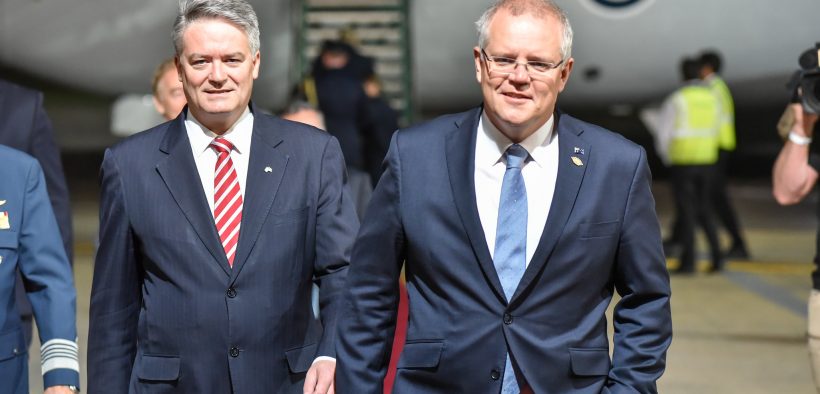Australian Press Freedom Under Attack Following Simultaneous Police Raids

“This is a serious development and raises legitimate concerns over freedom of the press and proper public scrutiny of national security and defense matters. The ABC stands by its journalists, will protect its sources and continue to report without fear or favor on national security and intelligence issues when there is clear public interest.”
On Wednesday, June 5, the Australia Federal Police (AFP) raided the office of the Australian Broadcasting Corp (ABC) over allegations that the country’s media outlet had leaked state secrets and information about possible war crimes committed by Australian military in Afghanistan.
Several police officers arrived at the ABC Sydney headquarters and brought a search warrant which included the names of two journalists and an editor-in-chief.
The AFP also searched the house of News Corp journalist Annika Smethurst on the eve of the ABC office raid, allegedly in relation to her report on Australia’s growing surveillance powers.
According to the New York Times, in April 2018, Smethurst reported on “secret correspondence between government ministries over a plan to expand intelligence agencies’ surveillance powers.” The proposal would bolster the authority of the Australian Signals Directorate to access Australians’ digital records without the consent of the country’s law enforcement.
The AFP denied the links between the raids on Smethurst’s house and ABC Sydney headquarters. The police stated that the search at Smethurst’s residence was related to the allegation that the reporter had published information categorized as “confidential.”
ABC Raid Linked to ‘Afghan Files’
The ABC raid was in connection to articles ABC published on Australian special forces in the Afghan War. ABC claimed that the sweep targeted the investigative series known as the “Afghan Files” which was broadcast in 2017.
The New York Times described the Afghan Files as “an article based on leaked military documents that detailed clandestine Australian operations in Afghanistan, including cases in which children and unarmed men were killed.”
The ABC bust came a week after the trial of former Australian military lawyer David McBride before the ACT Supreme Court over charges he leaked the classified documents in the Afghan Files to ABC.
The 55-year-old, who was nabbed last September on his way home in Sydney after arriving from Spain, insisted that he acted because he witnessed the government do something illegal. He admitted he had handed over the classified documents to ABC and said he is not afraid of going to jail.
“I saw something illegally being done by the government, and I did something about it. I’m seeking to have the case looking purely at whether the government broke the law and whether it was my duty as a lawyer to report that fact,” he told Canberra Times.
Raid Threatens Press Freedom in Australia
ABC’s executive news editor, John Lyons, tweeted that police gathered 9,214 files from the ABC network, including thousands of ABC internal emails. An Australian journalists alliance said both of the recent raids reflected a pattern of attack that endangers press freedom in Australia.
ABC Managing Director David Anderson said in a statement that the raid has raised grave concerns about press freedom.
“This is a serious development and raises legitimate concerns over freedom of the press and proper public scrutiny of national security and defense matters. The ABC stands by its journalists, will protect its sources and continue to report without fear or favor on national security and intelligence issues when there is clear public interest,” Anderson said.
Australian Prime Minister Scott Morrison defended the raid, saying such an act showed that the law had been upheld.
“No one is above the law,” Morrison said, as SBS reported.
Home Affairs Minister Peter Dutton said he had nothing to do with the raid, adding that his office was only informed after both raids were carried out.
Press Freedom Not Recognized in Australian Constitution
Australia has recently enacted stricter counter-espionage laws aimed at blocking foreign powers from intervening in Australian political decision-making processes and elections.
However, the regulations could have journalists facing imprisonment for obtaining classified files, despite reporting for the sake of public interest.
Peter Greste, a journalism professor at the University of Queensland, called for the overhaul of Australia’s constitution in an article for The Conversation. Australia has yet to recognize press freedom. The High Court only stresses the right to political communication.
The organization Greste chairs, the Alliance for Journalists Freedom, also called for the revision of Australia’s national security laws. Greste added that the law must protect journalists who report in the public interest, as well as whistleblowers.
“That isn’t to suggest that journalists should be immune, though. Rather, the onus should be shifted to the authorities to show why the public interest defense should not apply. It is also important that the exemption include whistleblowers,” Greste wrote in the Conversation.
ABC Will Take Legal Action Against the AFP Raid
ABC’s recently-appointed chair Ita Buttrose said her side is considering taking legal action against the confiscation of more than 100 documents revealing Australian soldiers’ role in the deaths of civilians in Afghanistan.
“At this point, we’re really assessing the allegations to see what actions can be taken and we want to make sure that we’re in the strongest available position to defend ourselves and also our journalists,” Buttrose told ABC radio on Monday.











